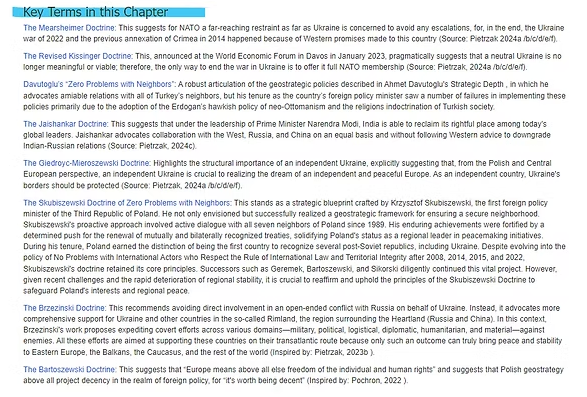Call for Chapters: The Morality of Software-Defined Warfare: Just War Theory, Army Medicine, and AI (2026)
- Piotr Pietrzak

- Jul 22
- 3 min read
Updated: Jul 30
Call for Chapters
Proposals Submission Deadline: August 31, 2025
Full Chapters Due: October 14, 2025
Editors
Piotr Pietrzak, Vistula University, Warsaw, Poland
Evangelos Koumparoudis, Bulgarian Academy of Sciences (BAS), Greece
Objective
In her "The Weaponization of Artificial Intelligence: What the public needs to be aware of," Birgitta Dresp-Langley suggests that "technological progress has brought about the emergence of machines that can take human lives without human control. These represent an unprecedented threat to humankind." The Morality of Software-Defined Warfare: Just War Theory, Army Medicine, and AI (2026) hopes to contribute to the most pressing debates on hura-optimistic use of new technologies in Software-Defined Warfare. There is a chance that the parties will start using AI in warfare without a moral overview related to the set of responsibilities related to all stages of this new era of warfare, from the inception stage of algorithm-driven combat drones, to equipping their with algorithmic & operational systems, to the final stage in which they are used in the battlefield of new type. This project hopes to assess the moral dimension of dealing with rescue drones that collect wounded from the battlefield, and look into the PTSD symptoms of drone operators and the belligerents operating in the new software-defined warfare environment that has completely revolutionised how modern warfare is waged.
The Morality of Software-Defined Warfare: Just War Theory, Army Medicine, and AI (2026) hopes to turn into a moral oversight of newly emerging field in warfare and serves as a reference for scholars and practitioners across at least four leading disciplines, dedicated to thoroughly scrutinizing and compartmentalizing the ethical dimensions of decision-making processes related to the emerging AI-driven Software-Defined Developments in Warfare and Medicine. It extends its invitation to Medical Practitioners, Conflict Management Specialists, and experts in Military Artificial Intelligence, as well as Research and Development departments within all DIANA NATO innovative labs across the 32 NATO member states.

Target Audience
Breakdown the readership/disciplines into the following areas: Primary Market: • All Major Libraries Around the World • Just War Specialists dealing with Humanitarian Studies, Ethics of Artificial Intelligence, and Bioethics • Conflict Management Specialists / Software Defined Warfare Researchers, • Governmental Representatives, Ministries of Health and Ministries of Defense Secondary Market: • NGOs and Think Tanks dealing with Medicine in the war zone • Mathematical Research and Modeling for the Army Institutes • Military Ontology, • DIANA NATO innovative labs, arms, and ammunition industry • Medical Practitioners & Big Data Pharmaceuticals, Mathematical & Computational Imaging & Probability Theory & Applications Specialists Tertiary Market: • General Public, • Just War Theory Enthusiast: Jus In Bellum & Jus Post Bellum • IR theorists, Social Scientists, Otologists & AI practitioners


Recommended Topics
The ethical oversight of AI technologies in warfare and medicine |
How can AI help in battlefield healthcare?
Moral dimension of algorithmic responsibility in Noman Operated Killing Machines, Lambda calculus, Deep Learning, Moral dimension of surveillance technologies in Warfare Related Medicine Developments,
Human/Machine Fusions, Brain Chips, Cyborg warriors, cyborg doctors, Moral Zombies, Robotics.
The historical evolution and contemporary applications of AI and robotics in warfare and medicine.
Secure cyber medicine, telemedicine technologies, information technologies in medicine, and digital health achieve the morality of intelligent battlefield healthcare.
Discussions on algorithmic responsibility, deep learning, human/machine fusions, and Other emerging AI-related topics provide readers with up-to-date insights into the latest advancements and debates.
Note: There are no submission or acceptance fees for manuscripts submitted to this book publication, The Morality of Software-Defined Warfare: Just War Theory and AI. All manuscripts are accepted based on a double-anonymized peer review editorial process.
All proposals should be submitted through the eEditorial Discovery® online submission manager.
ON STRUCTURE
What attracted us to start publishing with IGI Global in the first place is the structure of the chapters published with this publishing house. They always include the methodological part. Adding it as a compulsory thing makes it fascinating, for it gives us a glimpse into the analytical minds of other successful academics who can capture something as elusive as an ongoing conflict.
Authors are encouraged to adopt the following structure when preparing their chapters for submission to IGI Global:
Submitted via the portal:
Title
First Name, Last Name
ORCID Example: https://orcid.org/0000-0003-0464-1991
Abstract
The file submitted in the world-formatted document should comprise :
Introduction
Research Methodology
Literature Review
Followed by...
[The main body of the chapter allows for a flexible arrangement of content according to your needs and the thematic structure of your research.]
Conclusion
References (APA)
Key Terms used in this Chapter 8-16 - please see the example below:

Chapter size: 7000 to 10,000 - 12,000 words.
Lastly, please ensure that your Introduction and Conclusion are compelling to encourage readers to engage with the entire chapter.





Comments